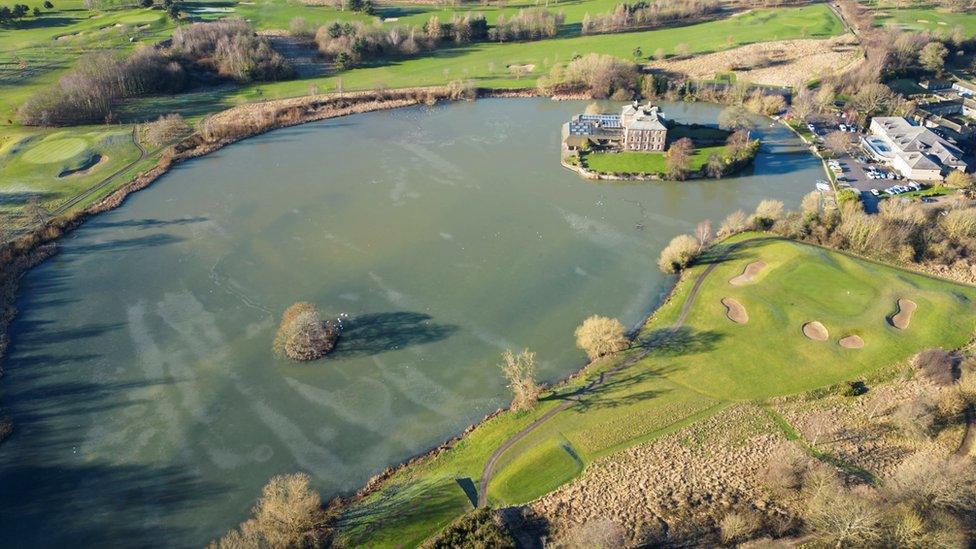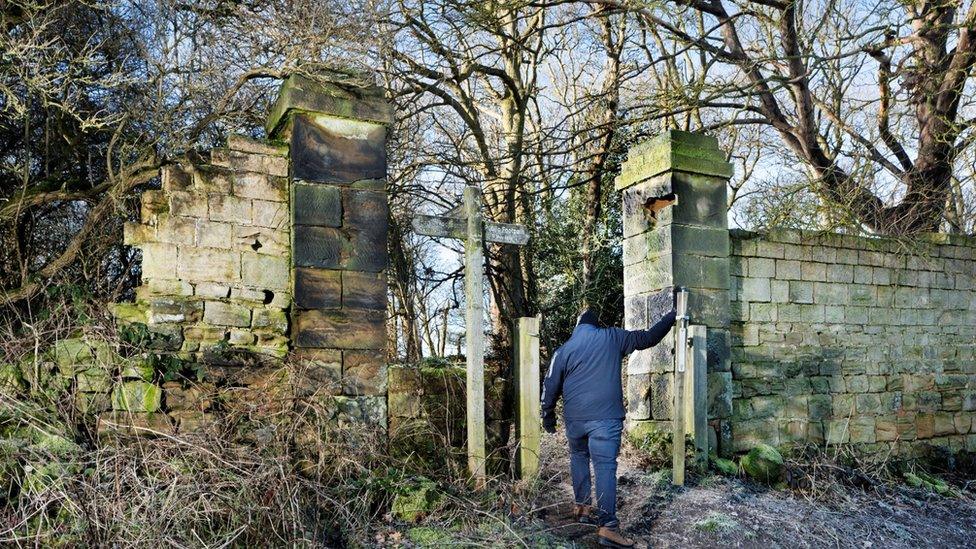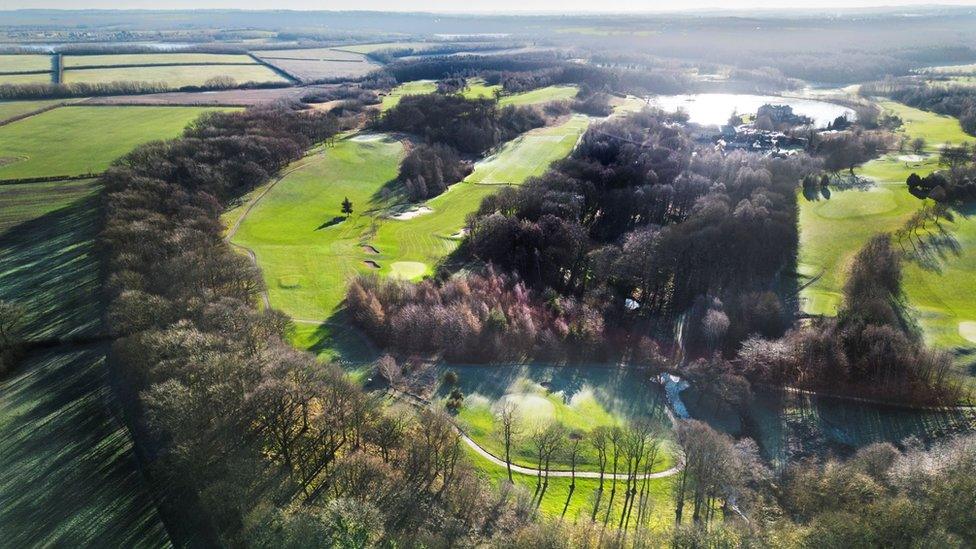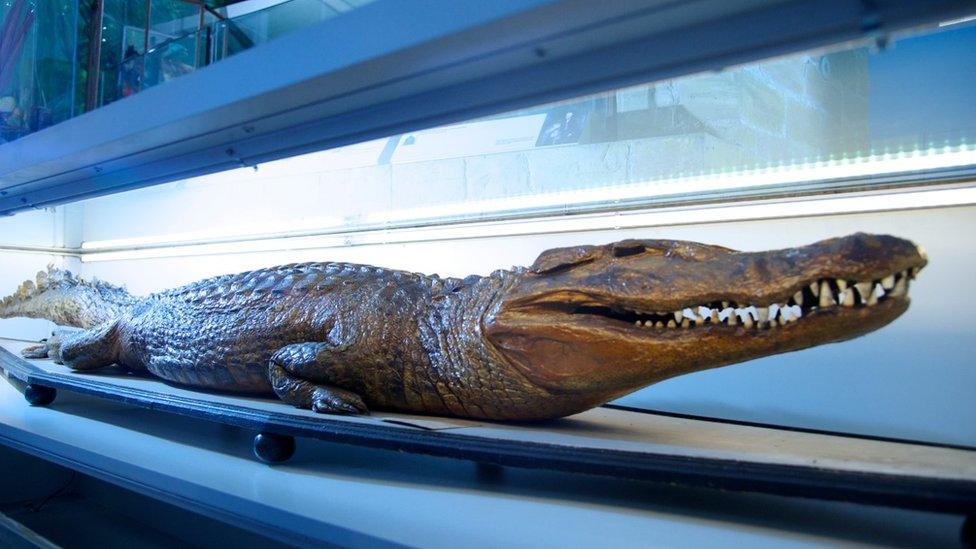Waterton Park: 'World's first nature reserve' joins heritage list
- Published
- comments

Charles Waterton inherited Walton Hall and Waterton Park from his family in 1805
A parkland, thought to be the world's first nature reserve, has been added to Historic England's protected register of parks and gardens.
Waterton Park was created by 19th Century naturalist Charles Waterton, at his family's estate near Wakefield.
Shooting and fishing were banned on site by Waterton and a boundary wall was put up to keep out predators.
Historic England described the park as the "first known example of a landscape designed to protect wildlife".
As well as stopping hunting and fishing, Waterton also barred neighbouring keepers and their dogs from entering during nesting season and worked to create new habitats for native birds.
The three-mile-long boundary wall - which has been given Grade II listed status - took five years to complete with Waterton - a teetotaller - claiming "it was paid for by the wine I do not drink".

The wall built around the park took five years to complete
In addition to his efforts to prevent disturbance and predators, Waterton planted new trees and undergrowth cover and also allowed part of the lake to become swampy for the benefit of herons and waterfowl.
According to Historic England, as a result of his work, one winter he recorded 5,000 wildfowl sheltering on the lake and over the years he noted 123 bird species in the park.
Recognising the benefits of wildlife and nature on the public Waterton also actively encouraged people to visit the park to connect with the surroundings.
Sarah Charlesworth, listing team leader for Northern England, said: "Charles Waterton was a true visionary who recognised both the value of protecting wildlife and the powerful link between nature and our wellbeing.
"With Waterton Park, he created a prototype for the modern nature reserve, where wildlife and humans can exist in harmony for their mutual benefit."

Mark Lynam, from Wakefield Council, said the park being added to the protected register was "hugely welcomed'
John Smith, chair of the Friends of Waterton's Wall, said he hoped the new status of the park and wall would help bring Waterton's "life and works to a wider audience not only locally but nationally".
Mark Lynam, corporate director for regeneration, environment and economic growth at Wakefield Council, said the new recognition for Waterton Park was "hugely welcomed".
"It increases the protection that can be given to the landscape and Waterton's wall around it," he said.
"It safeguards the things that make them special, and this is likely to be of interest not only to people in the district but potentially across the country and world as well."

Follow BBC Yorkshire on Facebook, external, X (formerly Twitter), external and Instagram, external. Send your story ideas to yorkslincs.news@bbc.co.uk, external.
Related topics
- Published17 August 2022
